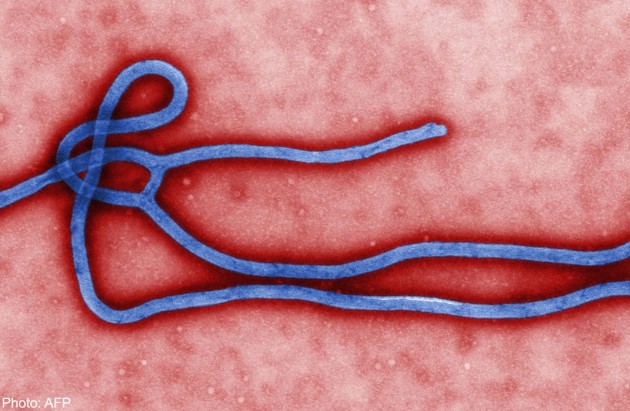What you should know about the Ebola virus

1. How is the Ebola virus transmitted?
By coming into direct contact with the body fluids (for example, blood, saliva, urine or stool) of an infected person.
2. Can someone catch it by merely standing near an infected person or animal?
Ebola is not spread through the air, but it may be dangerous to stand near enough such that you come into contact with contaminated body fluids - for example, within the range of an infected person's vomit, urine or respiratory secretions such as mucus. According to the World Health Organisation, patients become contagious once they start to show symptoms.
3. What precautions should be taken to prevent infection?
Do not come into contact with an infected person without adequate protection.
Avoid travelling to areas with active disease transmission. If you are in an affected area, avoid coming into contact with, handling or consuming wildlife - for example, infected fruit bats or monkeys.
Maintain good personal hygiene by washing your hands regularly and covering your nose and mouth while sneezing or coughing.
If in doubt, seek early treatment.
EBOLA AND SINGAPORE
4. Is Ebola likely to arrive in Singapore, given that it is a global air travel hub?
Singapore currently has a low risk because of low population movement between Singapore and affected West African countries. However, the situation needs to be monitored closely.
5. If an infected person arrives in Singapore, is Ebola likely to spread here, given the isolation facilities in place?
Singapore is taking a multi-pronged approach which includes:
Sustaining alertness and awareness of the global situation;
Continuing assessment of the local risk;
Communicating with all relevant parties;
Taking effective measures to protect against importation of cases;
Carrying out enhanced surveillance to detect and isolate suspect or real cases, and quarantine and monitor those exposed; and Enhancing protection for health-care workers who look after infected cases.

This article was first published on Oct 11, 2014.
Get a copy of The Straits Times or go to straitstimes.com for more stories.